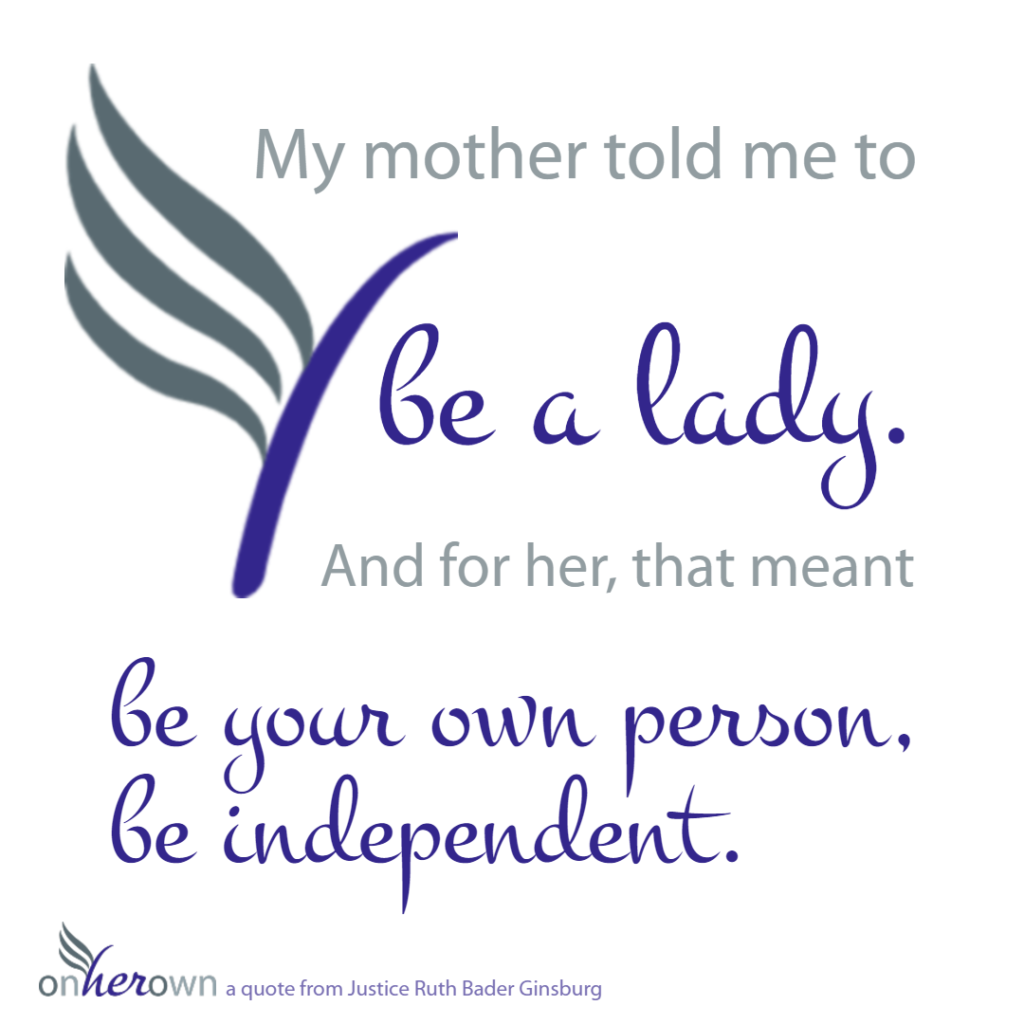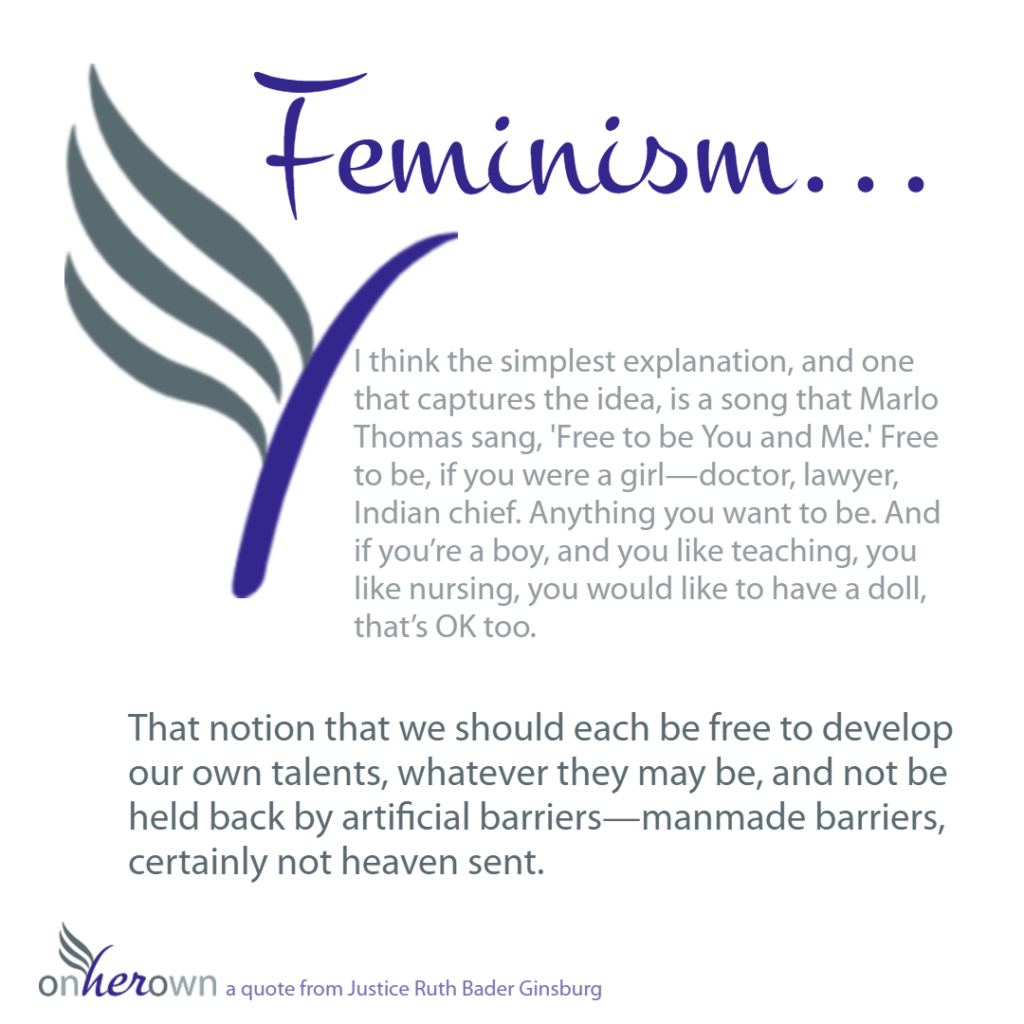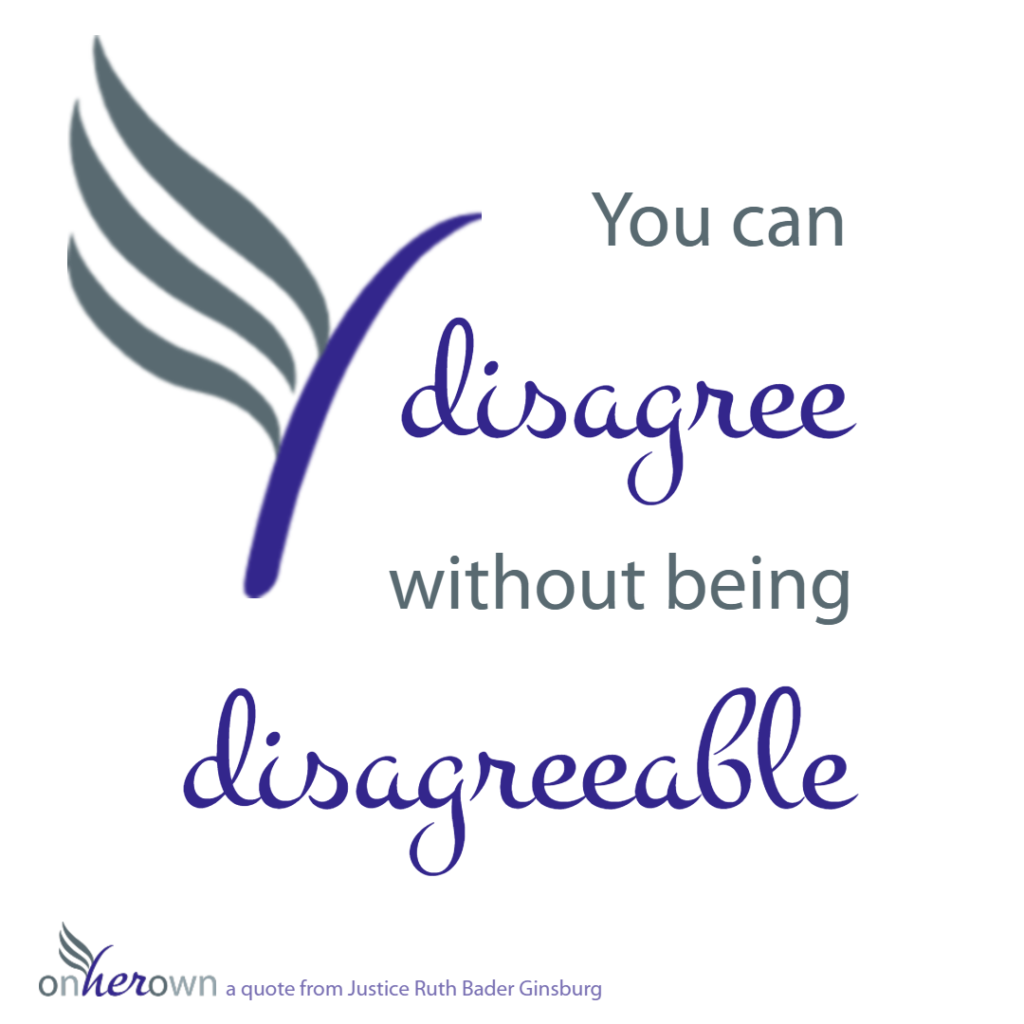Justice Ruth Bader Ginsburg passed away on Friday evening after a lifetime of service as a jurist, litigator, and scholar.
She was a trailblazer for women’s rights and gender equality for decades. Her work including direct involvement in litigation to ensure equal economic rights for men and women, including men’s access to spousal and widower benefits and women’s rights to work in traditionally male occupations, not to mention minor details like women’s rights to banking, credit, and other financial tools. Without that work, it would be impossible for women to function independently today, whether truly on our own or as the heads of our households. She also worked hard to protect the right to bodily autonomy in terms of reproductive rights. Many think about her work relating to access to abortion, but she also worked, for instance, against forced sterilization of women in poverty and for access to contraception. The ability to choose if and when pregnancy fits into our lives is part of what enables us to pursue education and careers, or to pursue motherhood in healthy and sustainable ways. As she said:

Justice Ginsburg’s very existence in the legal field has made my own career, and the careers of so many other women possible. She was a “first” or “one of the first” in everything from law school to the Supreme Court. While I don’t have children myself, she was part of the movement that enabled mothers to find ways to also be professionals, to not have to give up on their ability to earn the livings they were qualified to earn simply because of their pregnancies. And she demonstrated that a woman could excel in her career while supporting her husband and parenting her children, if she so wished. Or in her words:

She was also widely known for her civility and professionalism, and for her true personal friendships with those she may not have agreed with politically or philosophically. Memories of her incisive and talented legal mind compete only with memories of her graciousness and kindness. She could disagree vociferously on a variety of issues, but continue to share her love of the opera with the same colleagues she had skewered in a dissent earlier in the same week. Because, she said:

It’s not necessary to agree with her entire body of work to appreciate or admire Justice Ginsburg’s life and career. In fact, I suspect she would respect your disagreement done intelligently and without insult, belittlement, or condescension. Because her legacy doesn’t depend on resting on her laurels, on the incredible person she was and the amazing things she accomplished, so much as continuing to do the work she was passionate about, and do it in a way that made her friends and not enemies.




